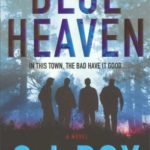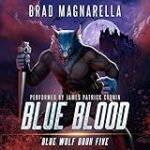Green on Blue: A Novel
“A compassionate, provocative, and alive” (Vogue.com) war story about a young Afghan orphan, “Green on Blue is harrowing, brutal, and utterly absorbing. With spare prose, Ackerman has spun a morally complex tale of revenge, loyalty, and brotherly love” (Khaled Hosseini, author of The Kite Runner).
Aziz and his older brother Ali are coming of age in a village amid the pine forests and endless mountains of eastern Afghanistan. They are poor, but inside their mud-walled home, the family has stability, love, and routine. One day a convoy of armed men arrives in their village and their world crumbles. The boys survive and make their way to a small city, where they gradually begin to piece together their lives. But when US forces invade the country, militants strike back. A bomb explodes in the market, and Ali is brutally injured.
To save his brother, Aziz must join the Special Lashkar, a US-funded militia. As he rises through the ranks, Aziz becomes mired in the dark underpinnings of his country’s war, witnessing clashes between rival Afghan groups—what US soldiers call “green on green” attacks—and those on US forces by Afghan soldiers, violence known as “green on blue.” Trapped in a conflict both savage and contrived, Aziz struggles to understand his place. Will he embrace the brutality of war or leave it behind, and risk placing his brother—and a young woman he has come to love—in jeopardy?
Green on Blue has broken new ground in the literature of our most recent wars, accomplishing an astonishing feat of empathy and imagination. Writing from the Afghan perspective, “Elliot Ackerman has done something brave as a writer and even braver as a soldier: He has touched, for real, the culture and soul of his enemy” (The New York Times Book Review).
An Amazon Best Book of the Month for February 2015: Green on Blue unravels the complexities of the Afghan war, then dissolves it all into the brutal heartache of reality – where home is a battlefield, fighting is a job, vengeance is a moral right, and war is “a racket…it had no sides. Each was the same as the other.” Aziz, an Afghan boy at the beginning of the novel, has lost nearly everything: Taliban forces killed his parents, and his older brother is left crippled when U.S. forces clash with militant ones. Alone, in need of money and seeking revenge, he enlists in the Special Lashkar, a militia funded by Americans to fight local insurgents. Aziz rises through the ranks, learns to kill, and discovers the nefarious profiteering, oppression and cultural beliefs that contrive this never ending war. A decorated Afghan and Iraq war veteran, Elliot Ackerman’s empathetic portrayal of individuals, factions, and the reasons they fight is fierce and haunting. With crisp, uncompromising prose, Green on Blue joins the canon of contemporary war literature and leaves you breathless. – Al Woodworth
Review of Elliot Ackerman’s Green on Blue by Ben Fountain

Photo credit: Thorne Anderson

Photo credit: Peter Van Agtmael
“The militants fought to protect us from the Americans,” says Aziz, the young Afghan narrator of Green on Blue, “and the Americans fought to protect us from the militants, and being so protected, life was very dangerous.” Aziz would know better than many: first he loses his parents and his home to the war, then his cherished older brother is left permanently disabled by a bombing, a chain of events that leads Aziz to join the Special Lashkar, an indigenous army sponsored by the Americans to combat insurgents in the Afghan countryside. And so begins Aziz’s life as a soldier in a savage, complex war where the requisites of nang and badal honor and revenge, sometimes serve, and at other times clash with, the larger goals of the Americans and their Afghan allies and enemies.
War: one could do worse than define it as the collision of chaos theory with the law of unintended consequences. Aziz discovers that what he wants from the war isn’t nearly so simple and pure as it once seemed, and indeed, the war itself is gradually revealed to be ghabban, a racket, with the blond-haired, blue-eyed American soldier “Mr. Jack” providing the money and arms that keep the whole bloody business going. “Some wars only feed themselves,” says Atal, the sometime enemy, sometime ally of Aziz. “They cannot be won, only starved.”
If we want to understand anything about this war we’ve been fighting for thirteen years–a war that keeps spinning off greater and greater chaos, and more black consequence than even the most cynical pacifist might have predicted–then Ackerman’s unflinching novel is an excellent place to start. Part of the genius of this book is the sheer power of the storytelling, thanks to the immersive effect of Aziz’s voice and the keenness with which he observes and ponders all that comes his way. What we witness in Aziz is the wisdom of the survivor: clear-eyed, stony, unsparing. But perhaps the greater part of this novel’s genius lies in the grinding, almost inevitable logic of Aziz’s ultimate act, the fatal “green on blue” of the title. How could he do otherwise in a war with “no cause . . . at least none larger than oneself?” All the politicians’ cheerleading of the past thirteen years, the p.r., the fine and pious phrases that seek to sanitize the shedding of more and more blood, are shown for the fraud they are by the truths of Elliot Ackerman’s extraordinary novel.
“A compassionate, provocative, and alive” (Vogue.com) war story about a young Afghan orphan, “Green on Blue is harrowing, brutal, and utterly absorbing. With spare prose, Ackerman has spun a morally complex tale of revenge, loyalty, and brotherly love” (Khaled Hosseini, author of The Kite Runner).
Aziz and his older brother Ali are coming of age in a village amid the pine forests and endless mountains of eastern Afghanistan. They are poor, but inside their mud-walled home, the family has stability, love, and routine. One day a convoy of armed men arrives in their village and their world crumbles. The boys survive and make their way to a small city, where they gradually begin to piece together their lives. But when US forces invade the country, militants strike back. A bomb explodes in the market, and Ali is brutally injured.
To save his brother, Aziz must join the Special Lashkar, a US-funded militia. As he rises through the ranks, Aziz becomes mired in the dark underpinnings of his country’s war, witnessing clashes between rival Afghan groups—what US soldiers call “green on green” attacks—and those on US forces by Afghan soldiers, violence known as “green on blue.” Trapped in a conflict both savage and contrived, Aziz struggles to understand his place. Will he embrace the brutality of war or leave it behind, and risk placing his brother—and a young woman he has come to love—in jeopardy?
Green on Blue has broken new ground in the literature of our most recent wars, accomplishing an astonishing feat of empathy and imagination. Writing from the Afghan perspective, “Elliot Ackerman has done something brave as a writer and even braver as a soldier: He has touched, for real, the culture and soul of his enemy” (The New York Times Book Review).













